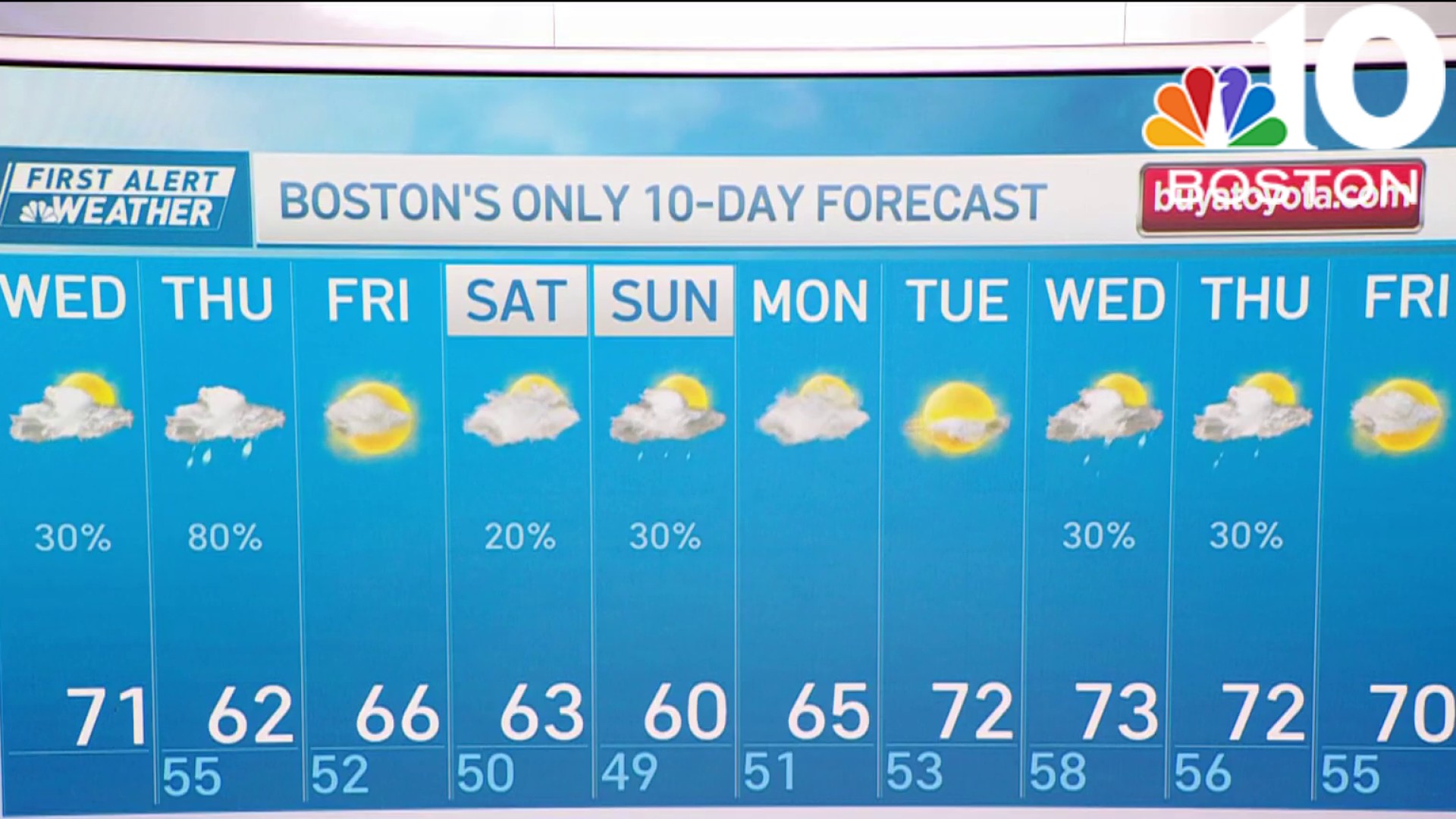Even going into Monday’s extreme rain, soil moistures were already high. Summer 2023 was a banner year for rainfall. Nearby Worcester, Massachusetts, has its second wettest summer on record, at more than ten inches beyond the norm. The buzz word or phrase you’ll hear a meteorologist use, is supersaturated soil. This will often exacerbate any flash flood setup simply because the ground in its supersaturated state cannot retain any additional moisture, and it all becomes runoff.
In Monday’s instance, rain begin to setup due to a stationary front. Unfortunately, much of New England has been in the cross hairs of this stationary front since the weekend. In fact, it’s the very front that brought our late season heatwave to an end. But instead of that front clearing and bringing pleasant conditions, it, like all things stationary, is stuck, and isn’t budging much. This provided just enough lift in the atmosphere for impulses of energy to tap into a fetch of tropical/sub-tropical air and deliver a deluge of rain. While you may ask, well why didn’t it rain as much in Boston. These energy impulses aren’t large in that regard.

This did though, setup a training thunderstorm scenario. Equivalent to train tracks that are laid down on the ground, the train cars traverse over the same spot with no migration. This is akin to how thunderstorms pounded areas repeatedly with burst-after-burst of rain.
Get Boston local news, weather forecasts, lifestyle and entertainment stories to your inbox. Sign up for NBC Boston’s newsletters.
Sure, tropical downpours are nothing new for New England. It’s how much of the summer has gone. We’ve had a rather humid summer that’s lead to seemingly never-ending rain. When in the vicinity of a front, that humid air then lifted into the upper atmosphere and condensed out as heavy rain. In a rather humid climate, thunderstorms will lead to downpours since the available moisture content is higher. This is more notable with a spring and summer downpour, rather than a winter rain.
Right out of the gate, the rainfall on Monday was rather heavy. Around 5 p.m., rainfall rates were near half an inch per hour. That’s a moderate downpour. By 6 p.m., it then became extreme when it rained more than two-and a half inches in an hour’s time. That is much faster than the ground’s absorption rate. And bear in mind, the ground is a wet-sponge even before this extreme rainfall, so it was destined to runoff. The rain, unfortunately did not stop there. The extreme rain stopped after roughly two hours, with lighter showers lingering through midnight, only to pour salt in the wound of residents and business owners in central Massachusetts.
Climate change and precipitation
A changing climate affects the intensity and frequency of precipitation. It makes the possibility of a heavy rainfall event, even heavier. This is a trend we’ve seen for decades across the globe, and have had a front row seat to it all summer long in Southern New England.
While I won’t bore you with the thermodynamics, this is a basic fundamental principle of thermodynamics under the Clausius-Clapeyron equation. It shows that for every 1 degree Fahrenheit of temperature increase, Earth’s atmosphere holds 4 percent more water vapor. The Untied States has warmed already by 2.6 degrees since 1970, meaning our atmosphere is holding nearly 10% more moisture

The warmer the air, the more moisture it can hold. Thus a warmer atmosphere will hold more water vapor. So far, 2023, is shaping up to be in the top 5 warmest, for cities like Boston and Worcester. That is a small factor in a much larger equation. But taking a step back, even since the 1970s, there is a notable trend in the increase of heavy rainfall events.
Beyond the immediate impacts of flash flooding like mudslides, debris flows and immobility of cars, flash flooding affects the way people continue to live their lives. Floodwaters can expose people to toxic water, and vector-borne illnesses. They also displace families from homes, and compromise agriculture, which trickles down leaving a financial burden on local economies.



